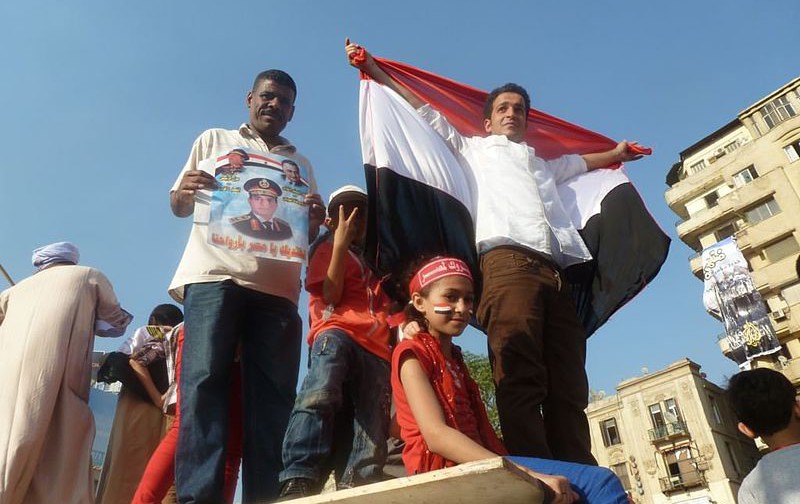Confused by the events in Egypt? This is not altogether a bad thing. Confusion is a symptom of the acceptance of nuance. It’s taken Americans a long time to emerge from the Cold War mindset, where foreign policy wasn’t very nuanced and was very black and white. “Terrorism” became our new enemy in the 21st century, and for some people the fight against terrorism was a clash with the Muslim world itself. Obama’s (at least nominal) winding down of the war on terror, along with the events of the Arab Spring, has broken this narrative.
To summarize, the Muslim Brotherhood emerged from the chaos of the Arab Spring as the best-organized party in Egypt. They used this organization to win an election and craft a fairly Islamist constitution. But there are strong secular currents in Egypt, and those currents were unleashed in a series of protests in recent weeks. The military is a powerful force in Egypt (not to mention one of the countries biggest manufacturers), and they used this opening to step in and depose the elected president, Mohamed Morsi. Morsi is an Islamist, although not as extreme as his opponents are painting him.
Is the coup a good thing? If you’re like me, and find even the religiosity in American government a little unsettling, the creation of a more secular government does seem like a good thing. Egypt could look to Turkey, where the military has used its influence to maintain a secular government and a fairly viable democracy (although recent protests suggest this balance may be cracking). If the Egyptian military really does help stabilize Egypt’s democracy, the coup could have a positive result.
And it’s important to separate this coup from previous coups in the Muslim world. A writer in Salon connects this current coup to past governments that have been toppled, such as Mossadegh in Iran, and argues that America only wants to have pliant leaders in power. This is another example of a Cold War mindset, and it was certainly true then. But Mossadegh was a popular leader who was ousted because of direct efforts by the CIA (as recounted in an excellent book). There is widespread opposition to Morsi in Egypt, and it doesn’t appear that the U.S. had any direct involvement in the coup.
Even if the coup leads to a more popular and stable government in Egypt, the idea of the military overthrowing a legitimately elected president is unsettling. Civilian control over the military is a fundamental part of the American democracy, stretching all the way back to the American Revolution. It’s hard to have a healthy democracy when the military is always crouching in the corner, ready to pounce if threatened. Wresting power from the military in Egypt will be a slow process, but this is not a good start.
The New York Times published a powerful quote from a conservative Egyptian Islamist after Morsi was deposed:
“Didn’t we do what they asked,” asked Mahmoud Taha, 40, a merchant. “We don’t believe in democracy to begin with; it’s not part of our ideology. But we accepted it. We followed them, and then this is what they do?”
We assume that everyone in the world wants democracy, and many (maybe most) do. The concept of democracy is so powerful that even America, with messy politics at home and sloppy interventions abroad, can’t tarnish it. But not everyone yearns for democracy. The failure of of the Egyptian military to respect the democratic process, and the failure of just about everyone besides the Muslim Brotherhood to stand up for Morsi, damages Egypt’s path to a healthy democracy. Egyptians may get back on that path, although this is far from certain right now.
The most important event in American history (arguably) occurred on March 4, 1801, when Thomas Jefferson was sworn in as president, replacing John Adams. Jefferson and Adams, former friends (who would reconcile before both dying on July 4, 1826), were now rivals at opposite ends of the political spectrum. But this transition of power proceeded smoothly. American elections can be brutal, but the result is always accepted by everyone (even if the Supreme Court has to step in to settle it). This is a fundamental tenant of our democracy, and Egyptians will have to accept it before their country can move forward.
